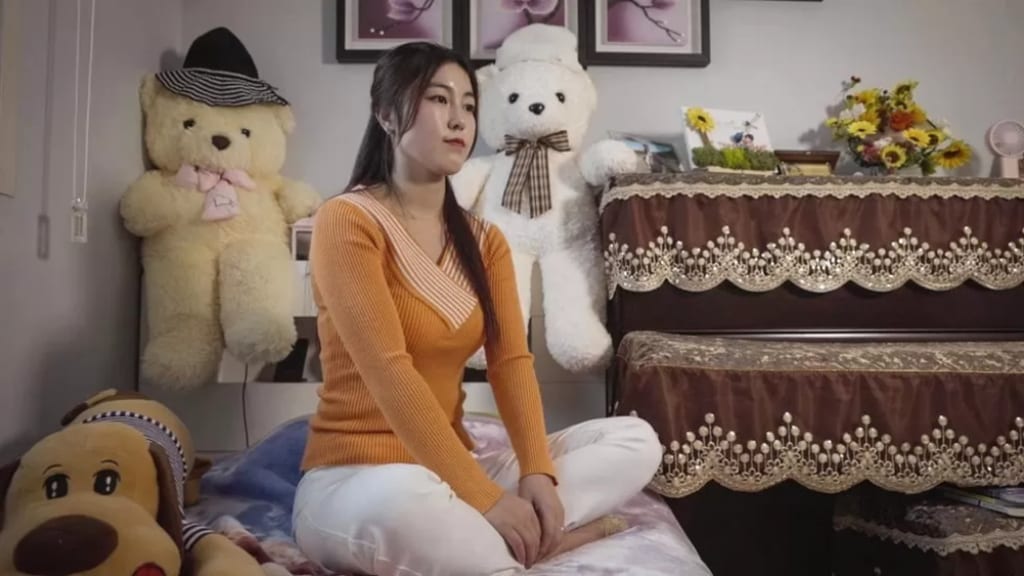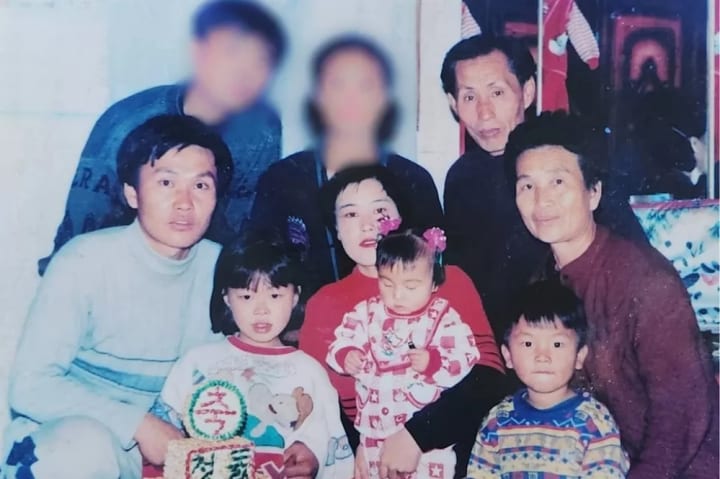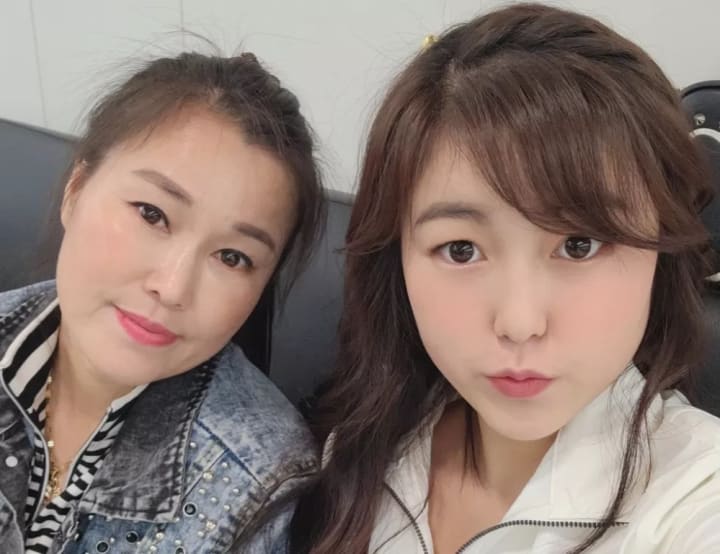The daughter who fled North Korea to find her mother
Mom and Daughter Love

Songmi Park dug her toes into the edge of the riverbank as she prepared to cross.
She knew she was supposed to be afraid. The river was deep, and the current looked strong. If she was caught she would certainly be punished, perhaps even shot. But she felt a pull far stronger than her fear. She was leaving North Korea to find her mother, who had left her behind as a child.
As Songmi waded through the icy water at dusk, she felt as if she was flying.
It was 31 May 2019. "How can I forget the best and worst day of my life?" she says.
Escaping North Korea is a dangerous and difficult feat. In recent years Kim Jong Un has clamped down harder on those trying to flee. Then, at the outset of the pandemic, he sealed the country's borders, making Songmi, then 17, one of the last known people to make it out.
This was the second time Songmi had crossed the Yalu River, which separates North Korea from China, providing escapees with their easiest route out.
The first time she left she was strapped to her mother's back as a child. Those memories are still as piercing as if they were yesterday .
She remembers hiding at a relative's pig farm in China, when the state police came looking for them. She remembers her mother and father pleading not to be sent back. "Send me instead," the relative had cried. The police beat him until his face bled.
Back in North Korea, she remembers her father with his hands cuffed behind his back. And she remembers standing on the train station platform, watching both her parents be transported to one of North Korea's infamous prison camps. She was four years old.
Songmi was sent to live with her father's parents on their farm in Musan, a North Korean town half-an-hour from the Chinese border. Going to school was not an option, they told her. Education is free in Communist North Korea, but families are often expected to bribe teachers, and Songmi's grandparents could not afford to.
Instead she spent her childhood roaming the countryside, hunting for clovers to feed the rabbits on the farm. She was often sick, even during summer. "I didn't eat much and so my immunity was low," she says. "But when I woke up from my sickness my grandmother would always have left me a snack on the windowsill."

At night Myung-hui would sit alone in the dark and think about her daughter, about what she was doing, and what she looked like. Songmi's birthdays were the hardest. She would take a doll from the cupboard and talk to it, pretending it was her daughter, looking for some way to keep their connection alive.
As Songmi's mother recounts their time apart, from the safety of her kitchen table, she starts to cry. Her daughter strokes her arm. "Stop crying, all your pretty make-up is getting ruined," she says.
After paying a broker £17,000 ($20,400), Myung-hui was finally able to arrange her daughter's escape. Suddenly, Songmi's decade of waiting, with dwindling hope, was over.
After crossing the Yalu River into China, she kept herself hidden, stealthily moving between locations at night, afraid of being caught once more. She rode a bus over the mountains and into Laos, where she took shelter in a church, before making it to the South Korean embassy. She slept at the embassy for another three months, before being flown to South Korea. When she arrived, she spent months in a resettlement facility, which is typical for North Korean escapees. The whole journey took one year but, to Songmi, it felt like 10.
Short presentational grey line
Finally reunited, she and her mother sit eating bowls of Myung-hui's homemade noodles in a spicy, cold broth.
The classic North Korean dish is Songmi's favourite. In contrast to her mother's guilt, Songmi radiates an infectious energy. She laughs and jokes as she comforts her mother, concealing any sign of her childhood trauma.
"The day before I was released from the resettlement centre, I was so nervous. I wasn't sure what I would say to my mother," she says. "I wanted to look pretty in front of her, but I'd gained so much weight during my defection and my hair was a mess."
"I was really nervous too," Myung-hui admits.
In fact Myung-hui didn't recognise her daughter, whom she had last seen when she was eight. Now she was meeting an 18-year-old.

As Songmi settles into her relationship with her mother, there are only small glimpses of strain. The pair frequently laugh and hug, and Songmi dries her mother's tears as they explore the painful details of each other's past.
Her mother's choice was the right one, Songmi says, because they are both now living happily in South Korea.
Myung-hui may not have been able to recognise her daughter initially, but the pair look strikingly alike. Now she can see her 19-year-old self in her daughter.
Their relationship is more like a friendship or one of sisters. Songmi enjoys telling Myung-hui all the details of her dates.
It is only when they argue that it hits her.
"Then I'm like, wow, I really am living with my mother," she says, laughing.





Comments
There are no comments for this story
Be the first to respond and start the conversation.